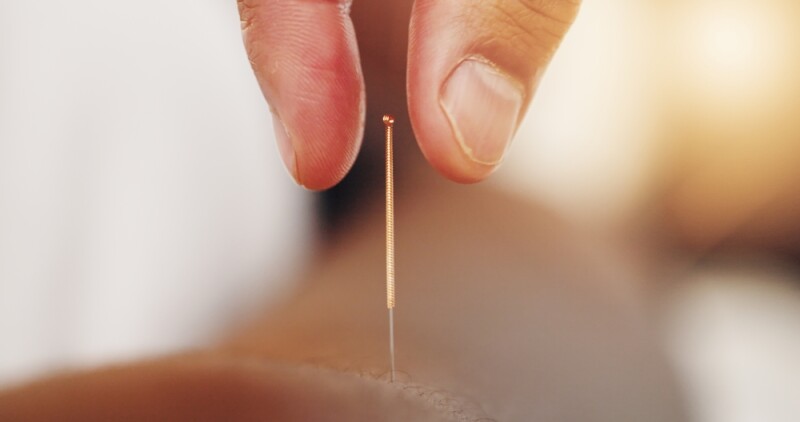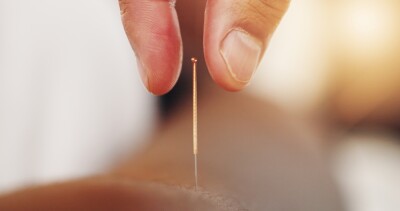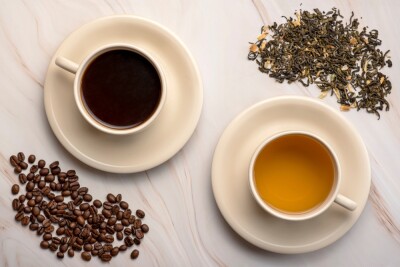Natural treatments for post-COVID-19 mental health issues
Although novel coronavirus (COVID-19) mental health problems have similar mechanisms to post-COVID syndrome, it needs to be treated differently, said Peter Bongiorno, ND, Lac, at the 2022 Integrative Healthcare Symposium in New York City.
According to Bongiorno, co-director of InnerSource Natural Health and Acupuncture, since 2019, rates of anxiety and depression have increased significantly among younger adults, women, and the poor in the United States. In addition, rates of drug use, drug overdoses, and domestic violence all increased.
The U.S. has also seen an increase of teenage suicides, according to a 2020 report from the Centers for Disease Control and Prevention. The same report attributed these suicides to loneliness, uncertain futures, and greater access to lethal weapons. When patients are considering buying a gun, Bongiorno suggested offering them alternatives like pepperspay.
“If someone is thinking of killing themselves and a gun is in their possession, they’re much more likely to do it,” said Bongiorno.
In his presentation, Bongiorno explained COVID-19 mechanisms of defense can impact the brain. He said COVID-19 can lead to a neurotropic viral infection of the nervous system. Bongiorno also noted, in a more indirect way, COVID-19 can cause neuroinflammation. Mitochondrial dysfunctions are also seen. In addition, stress due to the virus can induce alterations in the hypothalamic pituitary adrenal axis (HPA).
A study published in Brain, Behavior and Immunity, found COVID-19 patients had higher levels of (IL)-1β, higher neutrophil to lymphocyte ratios (NLR), and lower levels of an anti-inflammatory known as IL-10, demonstrating how COVID-19 infections can negatively affect the brain and lead to mental health disturbances. These things can all be tested through blood tests, according to Bongiorno.
“More than anything, what we are seeing is a lot of inflammation involved in COVID-19 neuropsychiatric disorders.”
A study published in Scientific Reports showed that COVID-19 reduced activity in nuclear-encoded mitochondrial genes associated with cellular respiration. Specifically, they found a reduction in Complex I expression which contributes to the production of energy. Results also showed platelet dysfunction from the apoptotic process which can lead to microhemorrhages, microinfarcts, and significantly higher rates of clotting.
Bongiorno also suggested loss of taste and smell were associated with anxiety and depression in COVID-19 survivors. For treating loss of taste and smell, Bongiorno recommended:
- Sleep
- Cardio
- Chiropractic/Cranial Sacral
- Nasal Rinse and Xylitol Spray
- Acupuncture
- No dairy products or sugar
- Zinc
- Aromatherapy: Three times a day, 10 seconds each – Essential oils: Clove, eucalyptus, lemon, rose – Ground coffee
To test for inflammation in COVID-19 survivors struggling with mental health, he listed these methods:
Basics:
- WBC
- Cholesterol Panel
- Liver Panel
Hormones:
- DHEA/DHEA sulfate
- Serum Cortisol
System Antibodies:
- Celiac Panel
- Thyroid Antibodies
Vitamins/Minerals:
- Vitamin D
- Vitamin A, C, E
- Glutathione
- Zinc, Selenium, Magnesium
He also suggested identifying inflammatory markers for things like homocysteine, uric acid, fibrinogen, and histamine as well as mitochondrial testing for D-Lactate, iron, zinc/copper and carnitine.
Treatments for post COVID-19 mental health problems vary, said Bongiorno. Generally, he explained that things such as COVID-19 support, air filters, sleep, exercise, water, insulin regulation, an anti-inflammatory diet, and supplements are important factors in a patient’s healing journey.
Bongiorno explained an association between ambient air pollution and COVID-19 mortality. Bongiorno said things like sleep and exercise can improve overall health, including mental health. As for supplements, Bongiorno suggested curcumin potential treatments to help with both COVID-19 as well as anxiety and depression.
“If curcumin was a drug, it would be a billion-dollar, blockbuster drug,” said Bongiorno.
He also suggested that saffron can help treat mental health symptoms. In addition, evidence indicates hypericum perforatum (St. John’s wort) as an effective supplement for improving mental health, Bongiorno explained. However, he warned clinicians to pay special attention to what other medications patients are taking as St. John’s wort doesn’t react well with many medications. Bongiorno also suggested implementing mitochondrial supports and acupuncture to alleviate symptoms of COVID-19 related anxiety and depression.
“I’m always surprised by how well these interventions work. Why they aren’t used as first line therapies, I don’t know,” Bongiorno said.




















SHARE